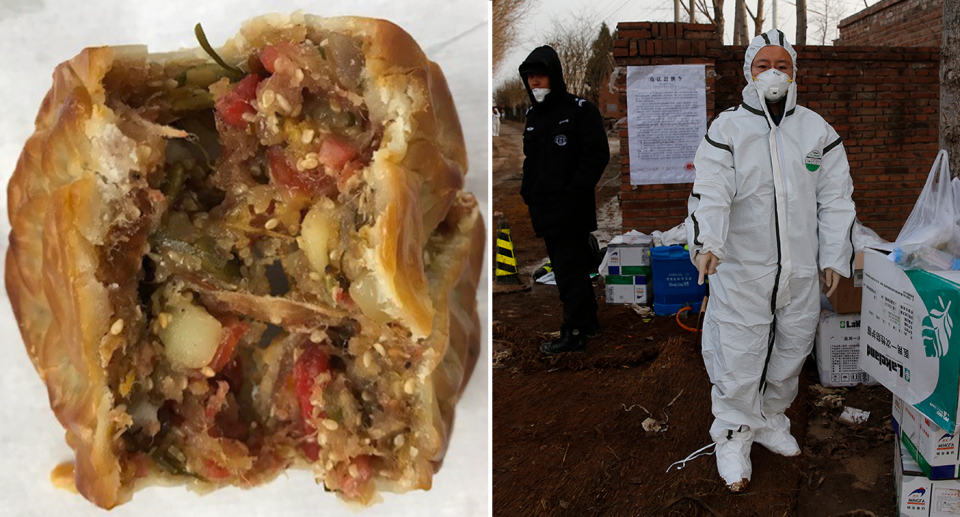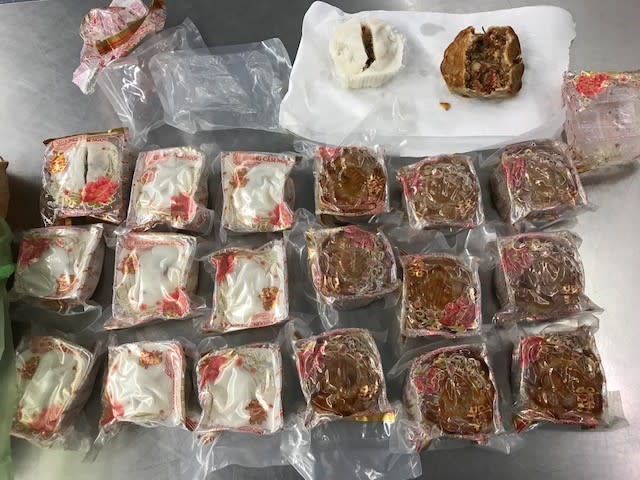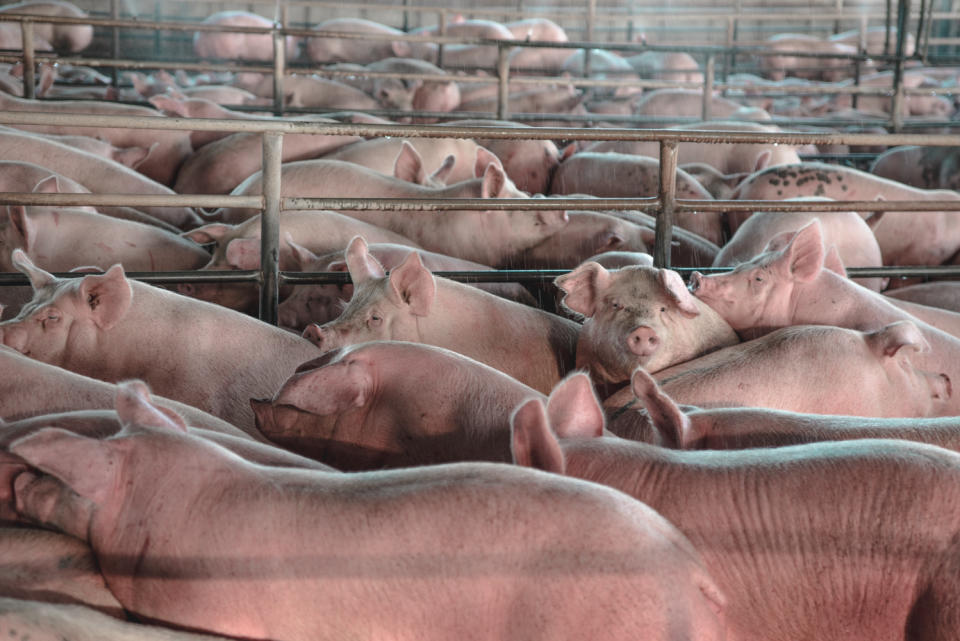How 'naive travellers' are threatening to ruin a $5 billion Aussie industry
Travellers are smuggling disease affected pork into Australia, despite warnings it could decimate our pig farms.
African swine fever (ASF) is now prevalent in neighbouring countries like China, and with no known cure, at least 39 per cent of that country’s pigs have been destroyed.
A department of agriculture spokesperson warned that some people go to “considerable lengths” to conceal the contraband.
In October this year, a Vietnamese woman was deported after trying to bring 4.5kg of undeclared pork into Australia, and earlier this month a man was sent home for attempting to carry in pork filled moon cakes.


“The quantities being detected can vary considerably, from individual portions to several kilos, but generally represent items intended for personal consumption,” an agriculture department spokesperson told Yahoo News Australia.
“To give you a sense of the volume, between 5 November 2018 and 13 August 2019, 27 tonnes of porcine product were intercepted across all airports and at international mail centres, reflecting 32,012 traveller carried items and 2,911 mail articles.
“Such items continue to be intercepted daily.”
Despite heightened security, and an increase in declarations at Australia’s borders, the volume of attempted contraband importation means small amounts are most likely slipping into the country.
‘A hell of a lot of bullets’: All pigs destroyed
Thirty-seven-year-old father of two, Caleb Smith, runs a farm in regional Victoria with 25,000 pigs.
He told Yahoo News Australia that ASF is a worldwide worry and the risk of it reaching Australia is high.
“If it got onto a property, that farm and every other farm within a three kilometre radius would be locked down,” he said.
Symptoms he’s on the lookout for include red to blue skin lesions, fever above 40 degrees, depression, lethargy, lameness, blood from the nose and mouth, vomiting, breathing difficulty, diarrhoea and death.
Mr Smith believes Australia’s farm-to-farm biosecurity measures and the isolation of his Yarrawalla property, 200km north of Melbourne, are helping to prevent the disease reaching his herd.
If it did get onto his farm, the result would be brutal.

The vet, government, and Australian Pork Limited would be immediately notified.
Animals, people and produce would be prevented from entering or leaving the facility.
Every pig would need to be killed.
“It’s very hard to imagine, I don’t think people understand the scale,” Mr Smith said.
“With 25,000 pigs, that’s a hell of a lot of bullets you’ve got to buy.
“Then, what impact is that going to have on the person pulling the trigger?
“You can imagine lining up and you might get through the first 10 or 15 okay, but then after that I think it would start to hit you.
“You’d go wow, I’m 10 or 15 in and I’ve got about 24,985 to go.”
‘Very nervous’: Farmer’s warning for travellers
The pigs would have to be buried deep in the ground.
After the facility was cleaned, operations could not restart for months.
With no income, farm staff would be be made redundant and that would be crushing for a small town like Yarrawalla.
“You’ve just been through the trauma of killing your whole herd, I reckon you’d be very nervous about getting in new pigs,” Mr Smith said.
He said that restarting operations would only require two or three staff, potentially putting the other 48 staff out of work.
That would be a significant blow to neighbouring Pyramid Hill which has a population of 500 people.
Mr Smith hopes that most people bringing pig meat into the country do so without knowing the consequences.
He believes that by sharing his story “naive travellers” will think twice before packing their suitcases with potentially deadly snacks.
His advice for anyone considering bringing pig meat into Australia is simple.
“Stop it,” he said.

‘Ten years in jail’: Biosecurity warning
Last month, Agriculture Minister Bridget McKenzie warned travellers found to have significantly breached Australia’s biosecurity laws face heavy penalties.
'Treated like trash': Shocking video shows baby goats shot in the head on farm
'Absolute tragedy': Koala numbers decimated after bushfires destroy key habitats
Inside the 'heartbreaking' dog meat farm where up to 5000 animals were slaughtered
“The punishment must fit the crime and that’s why we introduced this new legislation to cancel visitor visas when a passenger commits a significant biosecurity breach or repeatedly contravenes our biosecurity laws,” she said.
“Returning Australians who do the same could face criminal prosecution or civil court action.
“They could be ordered to pay up to $420,000 and be sentenced up to 10 years in jail.
“This government is serious about biosecurity and we will keep working to ensure the measures we have in place safeguard Australia from deadly pests and diseases now and into the future.”
Do you have a story tip? Email: newsroomau@yahoonews.com.
You can also follow us on Facebook and Twitter, download the Yahoo News app from the App Store or Google Play and stay up to date with the latest news with Yahoo’s daily newsletter. Sign up here.
